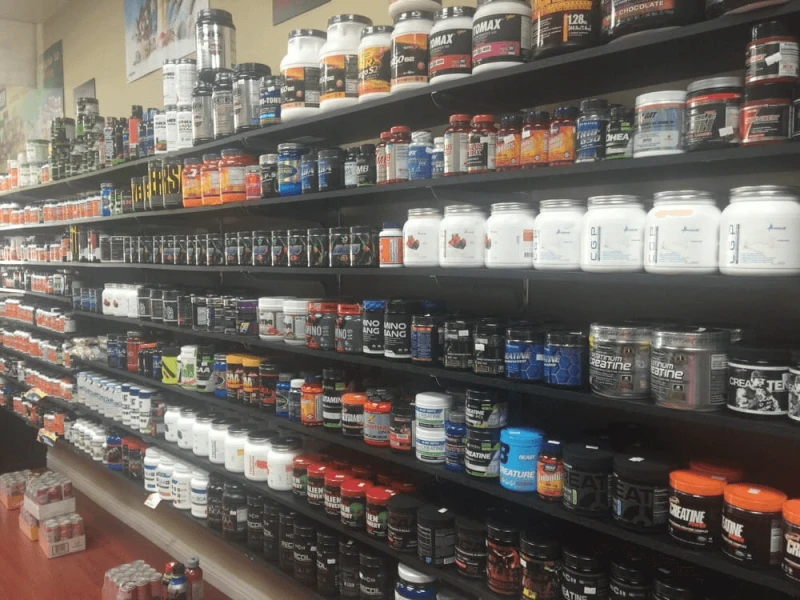Almost all supplements are useless, experts say. Here’s a few that offer some benefits
Almost all supplements are useless, experts say. Here’s a few that offer some benefits


The U.S. dietary supplement industry has exploded in the last 30 years, growing from about 4,000 products in 1994 to more than 95,000 on the market today, according to the Food and Drug Administration. These capsules, powders, gummies and tinctures are often labeled with big — if vague — claims like “supports immune health” or “improves brain performance.”
But most supplements have not been rigorously tested for safety or effectiveness, said Dr. JoAnn Manson, a professor of medicine at Harvard Medical School.
But, she said, there are some instances where taking a supplement may improve your health. Here are some of the main ones.
…
Collagen. Collagen, is one of the most abundant proteins in the body and helps form our skin, bones, muscles, tendons and ligaments. As we age, we naturally start reducing its production.
…
Vitamin B6. This essential nutrient is involved in a number of chemical reactions that are important for the proper functioning of the immune and nervous systems. As with the other essential vitamins, the body cannot produce B6 on its own.
…
Melatonin. The hormone is released by our brains as it starts to get dark outside, making us sleepy. Taking it in supplement form tricks your body into feeling like it’s nighttime.
…
Severalrecenttrials have also found that multivitamins may improve memory and slow cognitive decline in older adults, though more research is needed, Dr. Manson said.
This is an excerpt. Read the original post here

 | Videos | More... |

Video: Nuclear energy will destroy us? Global warming is an existential threat? Chemicals are massacring bees? Donate to the Green Industrial Complex!
 | Bees & Pollinators | More... |

GLP podcast: Science journalism is a mess. Here’s how to fix it

Mosquito massacre: Can we safely tackle malaria with a CRISPR gene drive?

Are we facing an ‘Insect Apocalypse’ caused by ‘intensive, industrial’ farming and agricultural chemicals? The media say yes; Science says ‘no’
 | Infographics | More... |

Infographic: Global regulatory and health research agencies on whether glyphosate causes cancer
 | GMO FAQs | More... |

Why is there controversy over GMO foods but not GMO drugs?

How are GMOs labeled around the world?

How does genetic engineering differ from conventional breeding?
 | GLP Profiles | More... |

Alex Jones: Right-wing conspiracy theorist stokes fear of GMOs, pesticides to sell ‘health supplements’




 Viewpoint — Fact checking MAHA mythmakers: How wellness influencers and RFK, Jr. undermine American science and health
Viewpoint — Fact checking MAHA mythmakers: How wellness influencers and RFK, Jr. undermine American science and health Viewpoint: Video — Big Solar is gobbling up productive agricultural land and hurting farmers yet providing little energy or sustainabilty gains
Viewpoint: Video — Big Solar is gobbling up productive agricultural land and hurting farmers yet providing little energy or sustainabilty gains Fighting deforestation with CO2: Biotechnology breakthrough creates sustainable palm oil alternative for cosmetics
Fighting deforestation with CO2: Biotechnology breakthrough creates sustainable palm oil alternative for cosmetics Trust issues: What happens when therapists use ChatGPT?
Trust issues: What happens when therapists use ChatGPT? 30-year-old tomato line shows genetic resistance to devastating virus
30-year-old tomato line shows genetic resistance to devastating virus California, Washington, Oregon forge immunization alliance to safeguard vaccine access against federal undermining
California, Washington, Oregon forge immunization alliance to safeguard vaccine access against federal undermining The free-range chicken dilemma: Better for birds, but with substantial costs
The free-range chicken dilemma: Better for birds, but with substantial costs ‘You have to treat the brain first’: Rethinking chronic pain with Sanjay Gupta
‘You have to treat the brain first’: Rethinking chronic pain with Sanjay Gupta
